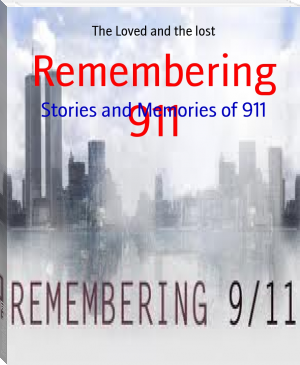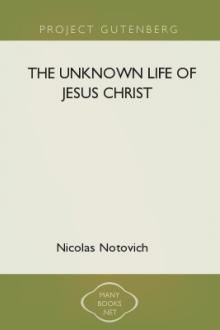The Story of My Life - Helen Keller (top rated ebook readers .txt) 📗

- Author: Helen Keller
- Performer: 0140439153
Book online «The Story of My Life - Helen Keller (top rated ebook readers .txt) 📗». Author Helen Keller
Later Helen came to my room, looking very sad, and wanted to kiss me. I said, “I cannot kiss naughty girl.” She spelled, “Helen is good, Viney is bad.” I said: “You struck Viney and kicked her and hurt her. You were very naughty, and I cannot kiss naughty girl.”
She stood very still for a moment, and it was evident from her face, which was flushed and troubled, that a struggle was going on in her mind. Then she said: “Helen did (does) not love teacher. Helen do love mother. Mother will whip Viney.” I told her that she had better not talk about it any more, but think.
She knew that I was much troubled, and would have liked to stay near me; but I thought it best for her to sit by herself. At the dinner-table she was greatly disturbed because I didn’t eat, and suggested that “Cook make tea for teacher.” But I told her that my heart was sad, and I didn’t feel like eating. She began to cry and sob and clung to me.
She was very much excited when we went upstairs; so I tried to interest her in a curious insect called a stick-bug. It’s the queerest thing I ever saw—a little bundle of fagots fastened together in the middle. I wouldn’t believe it was alive until I saw it move. Even then it looked more like a mechanical toy than a living creature. But the poor little girl couldn’t fix her attention. Her heart was full of trouble, and she wanted to talk about it. She said: “Can bug know about naughty girl? Is bug very happy?” Then, putting her arms round my neck, she said: “I am (will be) good tomorrow. Helen is (will be) good all days.” I said, “Will you tell Viney you are very sorry you scratched and kicked her?” She smiled and answered, “Viney (can) not spell words.” “I will tell Viney you are very sorry,” I said. “Will you go with me and find Viney?” She was very willing to go, and let Viney kiss her, though she didn’t return the caress. She has been unusually affectionate since, and it seems to me there is a sweetness-a soul-beauty in her face which I have not seen before.
July 31, 1887.
Helen’s pencil-writing is excellent, as you will see from the enclosed letter, which she wrote for her own amusement. I am teaching her the braille alphabet, and she is delighted to be able to make words herself that she can feel.
She has now reached the question stage of her development. It is “what?” “why?” “when?” especially “why?” all day long, and as her intelligence grows her inquiries become more insistent. I remember how unbearable I used to find the inquisitiveness of my friends’ children; but I know now that these questions indicate the child’s growing interest in the cause of things. The “why?”
is the DOOR THROUGH WHICH HE ENTERS THE WORLD OF REASON AND
REFLECTION. “How does carpenter know to build house?” “Who put chickens in eggs?” “Why is Viney black?” “Flies bite—why?” “Can flies know not to bite?” “Why did father kill sheep?” Of course she asks many questions that are not as intelligent as these. Her mind isn’t more logical than the minds of ordinary children. On the whole, her questions are analogous to those that a bright three-year-old child asks; but her desire for knowledge is so earnest, the questions are never tedious, though they draw heavily upon my meager store of information, and tax my ingenuity to the utmost.
I had a letter from Laura Bridgman last Sunday. Please give her my love, and tell her Helen sends her a kiss. I read the letter at the supper-table, and Mrs. Keller exclaimed: “My, Miss Annie, Helen writes almost as well as that now!” It is true.
August 21, 1887.
We had a beautiful time in Huntsville. Everybody there was delighted with Helen, and showered her with gifts and kisses. The first evening she learned the names of all the people in the hotel, about twenty, I think. The next morning we were astonished to find that she remembered all of them, and recognized every one she had met the night before. She taught the young people the alphabet, and several of them learned to talk with her. One of the girls taught her to dance the polka, and a little boy showed her his rabbits and spelled their names for her. She was delighted, and showed her pleasure by hugging and kissing the little fellow, which embarrassed him very much.
We had Helen’s picture taken with a fuzzy, red-eyed little poodle, who got himself into my lady’s good graces by tricks and cunning devices known only to dogs with an instinct for getting what they want.
She has talked incessantly since her return about what she did in Huntsville, and we notice a very decided improvement in her ability to use language. Curiously enough, a drive we took to the top of Monte Sano, a beautiful mountain not far from Huntsville, seems to have impressed her more than anything else, except the wonderful poodle. She remembers all that I told her about it, and in telling her mother REPEATED THE VERY WORDS AND PHRASES I HAD
USED IN DESCRIBING IT TO HER. In conclusion she asked her mother if she should like to see “very high mountain and beautiful cloudcaps.” I hadn’t used this expression. I said, “The clouds touch the mountain softly, like beautiful flowers.” You see, I had to use words and images with which she was familiar through the sense of touch. But it hardly seems possible that any mere words should convey to one who has never seen a mountain the faintest idea of its grandeur; and I don’t see how any one is ever to know what impression she did receive, or the cause of her pleasure in what was told her about it. All that we do know certainly is that she has a good memory and imagination and the faculty of association.
August 28, 1887.
I do wish things would stop being born! “New puppies,” “new calves” and “new babies” keep Helen’s interest in the why and wherefore of things at white heat. The arrival of a new baby at Ivy Green the other day was the occasion of a fresh outburst of questions about the origin of babies and live things in general.
“Where did Leila get new baby? How did doctor know where to find baby? Did Leila tell doctor to get very small new baby? Where did doctor find Guy and Prince?” (puppies) “Why is Elizabeth Evelyn’s sister?” etc., etc. These questions were sometimes asked under circumstances which rendered them embarrassing, and I made up my mind that something must be done. If it was natural for Helen to ask such questions, it was my duty to answer them. It’s a great mistake, I think, to put children off with falsehoods and nonsense, when their growing powers of observation and discrimination excite in them a desire to know about things. From the beginning, I HAVE MADE IT A PRACTICE TO ANSWER ALL HELEN’S
QUESTIONS TO THE BEST OF MY ABILITY IN A WAY INTELLIGIBLE TO HER, and at the same time truthfully. “Why should I treat these questions differently?” I asked myself. I decided that there was no reason, except my deplorable ignorance of the great facts that underlie our physical existence. It was no doubt because of this ignorance that I rushed in where more experienced angels fear to tread. There isn’t a living soul in this part of the world to whom I can go for advice in this, or indeed, in any other educational difficulty. The only thing for me to do in a perplexity is to go ahead, and learn by making mistakes. But in this case I don’t think I made a mistake. I took Helen and my Botany, “How Plants Grow,” up in the tree, where we often go to read and study, and I told her in simple words the story of plantlife. I reminded her of the corn, beans and watermelon-seed she had planted in the spring, and told her that the tall corn in the garden, and the beans and watermelon vines had grown from those seeds. I explained how the earth keeps the seeds warm and moist, until the little leaves are strong enough to push themselves out into the light and air where they can breathe and grow and bloom and make more seeds, from which other baby-plants shall grow. I drew an analogy between plant and animal-life, and told her that seeds are eggs as truly as hens’ eggs and birds’
eggs—that the mother hen keeps her eggs warm and dry until the little chicks come out. I made her understand that all life comes from an egg. The mother bird lays her eggs in a nest and keeps them warm until the birdlings are hatched. The mother fish lays her eggs where she knows they will be moist and safe, until it is time for the little fish to come out. I told her that she could call the egg the cradle of life. Then I told her that other animals like the dog and cow, and human beings, do not lay their eggs, but nourish their young in their own bodies. I had no difficulty in making it clear to her that if plants and animals didn’t produce offspring after their kind, they would cease to exist, and everything in the world would soon die. But the function of sex I passed over as lightly as possible. I did, however, try to give her the idea that love is the great continuer of life. The subject was difficult, and my knowledge inadequate; but I am glad I didn’t shirk my responsibility; for, stumbling, hesitating, and incomplete as my explanation was, it touched deep responsive chords in the soul of my little pupil, and the readiness with which she comprehended the great facts of physical life confirmed me in the opinion that the child has dormant within him, when he comes into the world, all the experiences of the race. These experiences are like photographic negatives, until language develops them and brings out the memory-images.
September 4, 1887.
Helen had a letter this morning from her uncle, Doctor Keller. He invited her to come to see him at Hot Springs. The name Hot Springs interested her, and she asked many questions about it.
She knows about cold springs. There are several near Tuscumbia; one very large one from which the town got its name. “Tuscumbia”
is the Indian for “Great Spring.” But she was surprised that hot water should come out of the ground. She wanted to know who made fire under the ground, and if it was like the fire in stoves, and if it burned the roots of plants and trees.
She was much pleased with the letter, and after she had asked all the questions she could think of, she took it to her mother, who was sewing in the hall, and read it to her. It was amusing to see her hold it before her eyes and spell the sentences out on her fingers, just as I had done. Afterward she tried to read it to Belle (the dog) and Mildred. Mrs. Keller and I watched the nursery comedy from the door. Belle was sleepy, and Mildred inattentive. Helen looked very serious, and, once or twice, when Mildred tried





Comments (0)